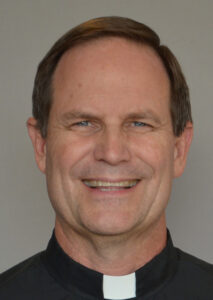It has been said that “confession is good for the soul.” If that is the case then I believe “absolution is great for the soul.” In truth, you cannot have one without the other. But it is the absolution that brings great blessing. As the Lutheran confessors wrote, “confession is to be retained for the sake of the absolution (which is its chief and most important part)” (AC XXV, Tappert, 63:13).
In this brief observation I will suggest a way in which pastors can help members receive comfort through individual absolution for sins they know and feel in their hearts.
In the summer of 1992 I was blessed to take a graduate course at Concordia Seminary taught by Kenneth Korby entitled, “Holy Absolution.” He told us the course was originally to be called “Private Confession.” But Norman Nagel, who was chair of the Systematics Department at the time, suggested to call it “Holy Absolution.” (Drs. Korby and Nagel understood that the absolution is the “chief and most important part.”)
Now, on the 30th anniversary of that course, I ask: why not consider thinking of the practice as “absolution” versus “confession”? I especially like the application of this phrase to “Private Absolution” versus the common term, “Private Confession.” When this is a regular practice, it is after all the absolution that leads one to be a repeat attender. It is also the absolution that invites one to begin attending in the first place.
For example, recently a family member, who is new to Lutheranism in a congregation that emphasizes this practice, asked me how to approach it. I shared a document with a series of questions for self-reflection on the Ten Commandments that I use to prepare when I go. I also shared in a text message this emphasis on the absolution. In the spirit of inviting others to consider it, I share it here:
“For the first few times a person goes to C/A, I now recommend simply using the general confession in LSB (p.292) and then hearing the absolution personally spoken to you. That’s because the practice is “for the sake of the absolution.” As you are comfortable doing so and drawn to it by the prospect of hearing the absolution, then you can enumerate specific sins. If you’re comfortable doing that now, great. But it shouldn’t be something you stress over. Make sense?”
Trusting that “absolution is great for the soul,” I suggest pastors offer this absolution-centered approach to the services we often only call “confession.” Along with the cherished service of public confession and absolution common in congregations, one could begin occasional congregational use of the public service of individual absolution (Lutheran Service Book, p. 290). Also providing opportunities for private absolution would also be an important goal. The power of the absolution can free people to then confess specific sins that trouble them, allowing the Gospel to bring great comfort. These pastoral care encounters do not take long and the form on p. 292 in Lutheran Service Book is very simple to use.
Finally, if you are a pastor, you may not have a father confessor. If so, please locate one. Taking that initiative is highly recommended because “absolution is good for the soul” of a pastor, too!
Dr. W. Mart Thompson

Associate Professor of Practical Theology


Leave a Reply
You must be logged in to post a comment.